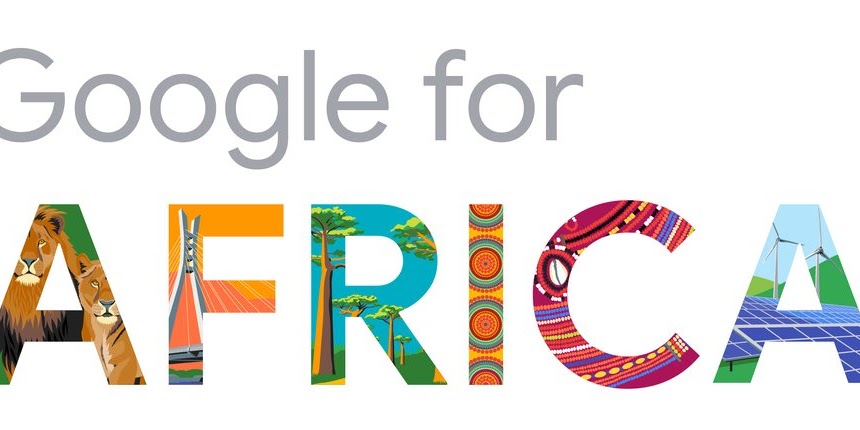This announcement was made at the second Google for Africa event and is a sequel to the announcement made in 2021 by the company's CEO, Sundar Pichai which promises to invest $1bn to support and build African entrepreneurs.
The purpose of this new Cloud Region is to support consumers, developers, enterprises and educational institutions in moving more tools and information online, enhancing customer access options and ultimately generating employment throughout Africa.
The future cloud region in South Africa, according to a study carried out by AlphaBeta Economics for Google Cloud, will support the creation of more than 40,000 employment and more than a cumulative USD 2.1 billion in GDP by 2030.
According to Niral Patel, Director of Google Cloud Africa “We believe in growing an open and healthy ecosystem of technology solutions to support Africa’s digital transformation goals, which leads to more opportunities for businesses.”
It is part of our company-wide ethos to respect the environment, which is why we operate the cleanest cloud in the industry, supporting sustainable digital transformation.”
“Along with the cloud region, we are expanding our network through the Equiano subsea cable and building Dedicated Cloud Interconnect sites in Johannesburg, Cape Town, Lagos and Nairobi. In doing so, we are building full-scale Cloud capability for Africa.”
Businesses such as TakeAlot (South Africa) and Twiga Foods (Kenya) – a technology-driven company addressing and improving food security in Africa – have started benefiting as Google Cloud is already working with them – helping them solve business-critical challenges, get online, and access the benefits of digital technology.
“Our National Development Plan 2030 calls for stimulating growth in the Information, Communication and Technology (ICT) sector and innovation by driving public and private ICT investment, especially in network upgrades and expansion.”
“Google's recent efforts in this regard have been particularly encouraging. The Equiano cable landed in Cape Town recently, and the improved speed and reduced internet costs that this can deliver has the potential to drive much fuller Internet participation for many more South Africans,” the Deputy Minister of Communications and Digital Technologies Philly Mapulane (South Africa) said.
Building more helpful products for Africa
Google announced intentions to open its first African product development centre in Nairobi earlier this year in order to create better goods for both Africans and the rest of the globe.
The Google keyboard, Gboard, now supports voice typing in nine additional African languages: isiNdebele, isiXhosa, Kinyarwanda, Northern Sotho, Swati, Sesotho, Tswana, Tshivenda, and Xitsonga. Additionally, Google Translate now supports 24 additional languages, including Lingala, which is spoken by more than 45 million people in Central Africa.
Supporting African entrepreneurs
By 2025, the internet economy in Africa might reach $180 billion, or 5.2% of the continent's GDP. Google focuses on supporting African small businesses in growing and developing their talent while also assisting job seekers in gaining the necessary skills through Developer Scholarships and Career Certifications. Google also continues to support African small businesses through the Hustle Academy and Google Business Profiles.
Google has since invested in three companies over the past nine months through its $50 million Africa Investment Fund, which focuses on equity investments in tech startups. These companies are SafeBoda, a transportation app in Uganda and Nigeria, Carry1st, a South African mobile gaming startup, and Lori Systems, an e-logistics company with headquarters in Kenya.
“We are collaborating with governments, policymakers, NGOs, telcos, business leaders, creators and media so that we can help accelerate Africa’s digital transformation. And it’s the talent and drive of the individuals in the countries and communities of Africa that will power Africa’s economic growth,” Nitin Gajria, Managing Director, Google Africa added.
Among the accomplishments is the subsea cable, Equiano, which currently connects St. Helena, Togo, Nigeria, Namibia, and South Africa with Europe. Equiano is projected to bring quicker, less expensive internet to the continent.
According to a recent economic effect assessment by Africa Practice and Genesis Analytics, by 2025, the cable is expected to boost economic growth, with GDPs in Nigeria, South Africa, and Namibia each increasing by USD 10.1 billion, USD 7 billion, and USD 260 million, respectively. Equiano should, thanks to the growth of the digital economy and ancillary industries, indirectly generate 1.6 million jobs in Nigeria, 180,000 in South Africa, and 21,000 in Namibia during the same period.
“This event provides a quintessential platform for us as Africans, together with our partners, to demonstrate the importance of helpful partnerships between governments and the private sector in addressing African challenges.”
“The Ghanaian government is proud of our partnership with Google through several initiatives,” Vice President of Ghana, Dr Mahamudu said.
Google has committed $40 million in cash and in-kind to charity organisations that are attempting to improve life in Africa. In the previous year, 7,500 career scholarships were given out to assist young people in developing their careers and learning new skills, and Uganda's AirQo was awarded a $3 million grant to support the expansion of their work on air quality monitoring from Kampala to ten cities in five different African nations.
The Global Africa Business Initiative (GABI), a global alliance aiming to hasten Africa's economic growth and sustainable development, was recently launched by Google in collaboration with the UN.



